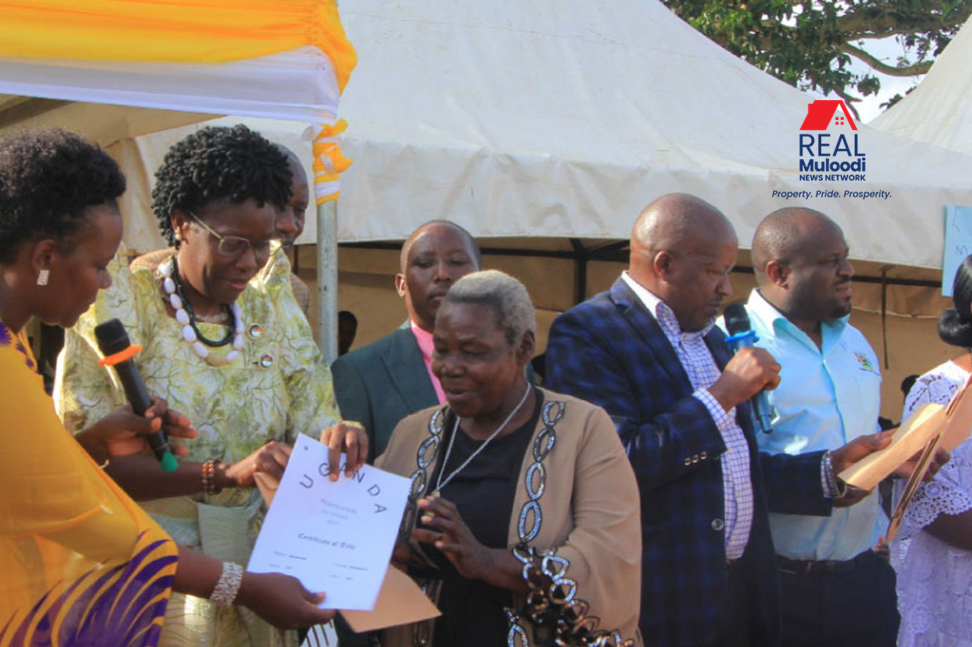UGANDA, Kampala | Real Muloodi News | The Ugandan government has earmarked approximately USh313.5 billion to compensate Buganda landlords whose land is occupied by bonafide sitting tenants. This initiative is part of a broader effort to resolve longstanding land disputes in the Buganda sub-region and other areas, such as Bunyoro, Tooro, Ankole, and Bugisu.
Mr. Daniel Mugulusi, Undersecretary at the Uganda Land Commission (ULC), stated that the compensation process has been delayed due to budget shortfalls, as the Land Fund has not yet been fully implemented.
“The number of landlords to be paid will depend on the money that we are going to receive. In Buganda alone, for instance, we need USh313.5 billion, and of this, USh4.5 billion will be spent on conducting systematic demarcation and titling of land,” Mr Mugulusi said during an interview.
The compensation process involves several activities, including boundary opening, and sensitization of leaders in districts such as Mubende, Luweero, Nakasongola, Kayunga, and Gomba.
According to Mr Mugulusi, these activities are pending funds, and the government plans to carry out subdivision surveys and systematic demarcation after making payments to absentee landlords.
ULC records indicate that the government has already spent USh64.7 billion on compensating 91 Buganda landlords to settle sitting tenants, commonly known as Bibanja holders. This effort is part of the government’s plan to permanently settle 10,000 sitting tenants who have faced continuous land disputes. So far, 50 square miles of land have been secured from landlords willing to sell.
Lands Minister Judith Nabakooba reported that of the 91 landlords compensated, 68 have received USh48.8 billion from the Land Fund, while another 28 landlords have been partially paid USh15.9 billion.
The compensation process is ongoing, with the government prioritizing those who express interest in selling their land.
Ms. Daisy Nakandi, spokesperson for the Uganda Land Commission, clarified that the government does not select which landlords to compensate; instead, it responds to those who express interest.
“It might be hard to provide the list of landlords lined up for compensation as the majority prefer confidentiality,” she noted.
Since the Land Fund’s inception in the 2002/2003 financial year, the commission has received funding totalling USh219 billion and has acquired 126,995.91 hectares of land.
According to a 2023 ULC report, over 10,861 certificates of title have been issued to lawful and bonafide occupants in different regions across Uganda.
In June, the government began issuing titles to 475 sitting tenants in Gomba District after compensating their landlords. Similar initiatives are underway in Mubende, Nakasongola, and Kayunga districts.
Minister Nabakooba recently disclosed that the government needs close to USh47.2 trillion to compensate all landlords across the country. This compensation is intended to allow sitting tenants to settle peacefully, resolving disputes that have plagued many districts, particularly in the central region.
Land ownership in Buganda is complex, with land managed by the Buganda Land Board being offered on leases, alongside private land owned by individual landlords.
Additionally, 9,000 square miles of land are reserved for future generations across the 18 counties that form the Buganda Kingdom.
Land disputes have become a significant issue in Uganda, especially in the central region, where wealthier landowners are evicting poor tenants from what they claim as their ancestral land.
These evictions have led to tensions, with some landlords facing violent resistance from tenants. In response, the government is pushing for land reforms aimed at addressing land grabbing and ensuring peaceful settlements.
This compensation program for Buganda landlords is part of the government’s broader strategy to stabilize land ownership and resolve disputes in Uganda’s central region, where land issues have become increasingly contentious.
READ MORE LIKE THIS:



